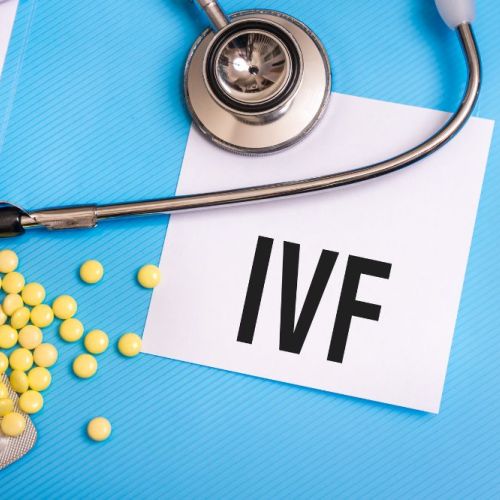Pros and Cons of Assisted Reproductive Technology

Having difficulty conceiving a child when you’ve decided you’d like to be a parent can be heartbreaking. Infertility refers to being unable to unable to get pregnant after a year of trying. Assisted reproductive technology includes several different medical procedures that may help patients overcome fertility issues that have been interfering with conception.
Knowing the pros and cons of assisted reproductive technology can help you make an informed decision on whether to seek treatment for your fertility challenges. The team of fertility experts at the Center for Reproductive Health can help you understand your options for fertility treatment using assisted reproductive technology.
Pros of Assisted Reproductive Technology
There are several pros of assisted reproductive technology. When you work with experts in the field of fertility, you undergo a thorough examination which may help to clearly identify the cause of your infertility. If your partner has problems such as low sperm motility or low sperm count, you may be able to use donor sperm if needed.
In vitro fertilization is a safe procedure that’s been done for more than 40 years. Extra embryos created during IVF can be frozen for future use or donated to other couples who are dealing with fertility challenges.
Assisted reproductive technology provides conception options for people who otherwise might not be able to get pregnant such as single women and same-sex female couples. The biggest pro of going through with assisted reproductive technology is that many patients do end up experiencing a successful pregnancy. Technology continues to advance which is leading to increasing success rates.
Cons of Assisted Reproductive Technology
There are some cons that it’s important to be aware of before you decide to have fertility treatment. Having this type of treatment can be expensive and isn’t typically covered by health insurance. There’s no guarantee of success and it may take multiple rounds of treatment before you’re able to get pregnant or carry a baby to term. This could end up costing several thousand dollars. When treatment isn’t successful right away, you may end up on an emotional roller coaster as you feel hopeful for a while, but your hopes may be dashed if pregnancy doesn’t happen.
As part of your treatment, you may be give fertility drugs. These drugs sometimes have unpleasant side effects, and if you do get pregnant, they may cause multiple births. Being pregnant with multiples carries a risk of health problems for either the mother or the fetuses.
Deciding Whether to Pursue Assisted Reproductive Technology
The decision on whether to undergo fertility treatment is an individual one, and you have to weigh the pros and cons of having it done. The best thing to do is get as much information as you can so that you can make the right choice for your situation.
If you’ve been trying to get pregnant without success, don’t give up hope without finding out your options. Reach out to the Center for Reproductive Health for more information or to set up a consultation.
Eliran Mor, MD
Reproductive Endocrinologist located in Encino, Santa Monica, Valencia & West Hollywood, CA
FAQ
What does a reproductive endocrinologist and infertility specialist do?
Reproductive endocrinology and Infertility is a sub-specialty of Obstetrics and Gynecology. In addition to managing medical and surgical treatment of disorders of the female reproductive tract, reproductive endocrinologist and infertility (REI) specialists undergo additional years of training to provide fertility treatments using assisted reproductive technology (ART) such as in vitro fertilization.
Reproductive endocrinologists receive board certification by the American Board of Obstetrics and Gynecology in both Obstetrics and Gynecology and Reproductive Endocrinology and Infertility.
When should I see an REI specialist?
In general, patients should consider consulting with an REI specialist after one year of trying unsuccessfully to achieve pregnancy. The chance of conceiving every month is around 20%, therefore after a full year of trying approximately 15% of couples will still not have achieved a pregnancy.
However, if a woman is over the age of 35 it would be reasonable to see a fertility specialist earlier, typically after 6 months of trying.
Other candidates to seek earlier treatment are women who have irregular menses, endometriosis, fibroids, polycystic ovary syndrome (PCOS), women who have had 2 or more miscarriages, or problems with the fallopian tubes (prior ectopic pregnancy).
What are the reasons we are having trouble conceiving?
Approximately 1/3 of the time cause for infertility is a female factor, 1/3 of the time a male factor, and the remaining 1/3 a couples’ factor.
At CCRH, we emphasize the importance of establishing a correct diagnosis. Both partners undergo a comprehensive evaluation including a medical history and physical exam.
Furthremore, the woman’s ovarian reserve is assessed with a pelvic ultrasound and a hormonal profile. A hysterosalpingogram (HSG) will confirm fallopian tube patency and the uterine cavity is free of intracavitary lesions. A semen analysis is also obtained to evaluate for concentration, motility, and morphology of the sperm.
Additional work up is then individualized to direct the best possible treatment option for each couple.
What is IVF? What is the process like?
In vitro fertilization (IVF) is the process that involves fertilization of an egg outside of a woman’s body.
The process starts with fertility drugs prescribed to help stimulate egg development. In your natural cycle, your body is only able to grow one dominant egg, but with stimulation medication we can recruit multiple eggs to continue to grow. After about 8-10 days of stimulation, the eggs are surgically retrieved and then fertilized with sperm in a specialized laboratory. Fertilized eggs are then cultured under a strictly controlled environment within specialized incubators in the IVF laboratory for 3-5 days while they develop as embryos. Finally, embryos (or an embryo) are transferred into the uterine cavity for implantation.
Should I have IVF?
Before deciding if IVF is the right choice, it’s important to sit down with an REI specialist to discuss available treatment options. For some people, other methods such as fertility drugs, intrauterine insemination (IUI) may be the best first choice treatment. At CCRH, we believe each individual couple is unique and not everyone needs IVF.
Is the IVF procedure painful?
While not painful, the fertility medications may some side effects including headaches, hot flashes, mood swings, and bloating. The injection sites may also bruise.
Will IVF guarantee a baby?
Unfortunately, no. Many people think once they start IVF it’s a matter of time that they will be pregnant and have a baby. But according to national statistics per the Society of Assisted Reproduction (SART), on average 40% of assisted reproduction cycles achieve live births in women under age 35. The chances of success then continue to decrease with advancing age.
At CCRH, we employ only evidence-based interventions to ensure patient safety and optimal outcome. While we cannot guarantee a baby, we guarantee that you will receive the best, most advanced, personalized care to help you maximize your chance of a baby.
What is the success rate for IVF?
The average IVF success rate (success measured in live birth rate) using one’s own eggs begins to drop around age 35 and then rapidly after age 40. This is due to the decline in egg quantity and egg quality as a woman ages.
Our clinic’s success rate consistently beats the national average year after year.
Do insurance plans cover infertility treatment? How much does IVF cost?
Individual insurance plans often do not have any coverage for infertility treatments. If you have a group plan, you can call members services to see if they have coverage for infertility (including consultation/workup and IVF).
After your consultation with our REI specialist, one of our dedicated account managers with sit with you to go over the cost of treatment.




